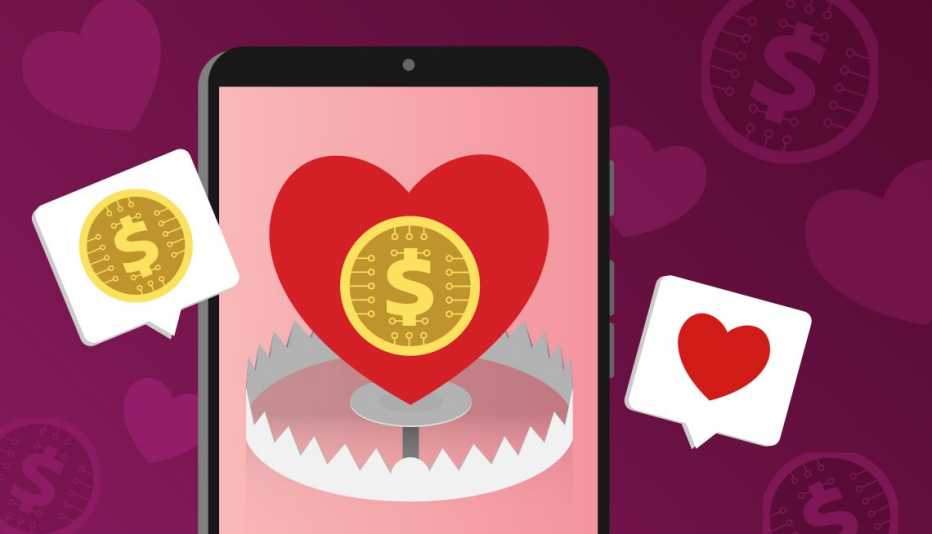AARP Hearing Center


Are you hoping for true love? And more money than you ever imagined?
Who isn’t?
That’s why an unconscionable cadre of criminals dangle these twin temptations — the promise of romance and vast wealth — in what can be an emotionally and financially devastating double-barreled scam. The deception starts out as a romance scam and transforms into a cryptocurrency investment fraud in which victims have lost millions of dollars.
Essentially, the criminal seduces the victim online then gets him or her to make bogus investments in crypto. It’s been a growing problem for about three years, says Erin West, a former deputy district attorney in San Jose, California, and founder of Operation Shamrock, a nonprofit focused on battling cryptocurrency crime.
Victims often don’t realize there’s no money in their digital currency accounts until it’s too late, says Amy Nofziger, director of victim support for the AARP Fraud Watch Network, and by then the “criminal has long moved on to another victim.”
West, who has seen the trail of destruction that crypto-romance scammers leave in their wake, notes that victims not only have to grapple with the financial loss but also the heartbreaking betrayal by a “person they’ve grown to love and trust.”
(Losing that trust, in addition to life savings, can have tragic consequences, as this family discloses in AARP's The Perfect Scam podcast.)
The scope of the problem
Since scams are notoriously underreported, it’s hard to pinpoint the precise number of victims. But nearly 64,000 people reported a romance scam to the Federal Trade Commission (FTC) in 2023, with $1.4 billion in reported losses.





































































More From AARP
7 Tactics Criminals Use to Perpetrate Fraud
Scammers have learned how to manipulate people’s emotions and take advantage of their trust in others
13 Ways to Protect Yourself From Fraud
Learn how to lower your risk and keep criminals at bay